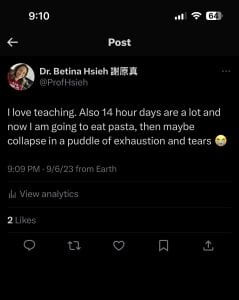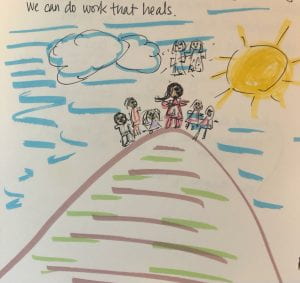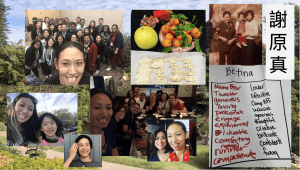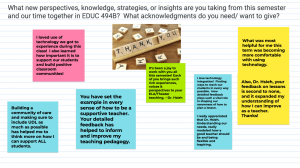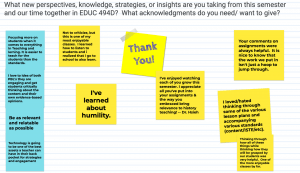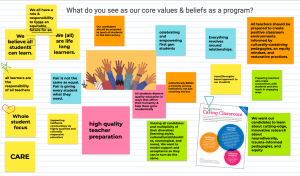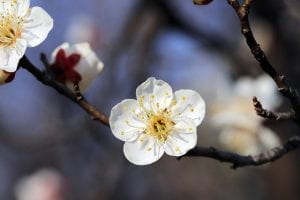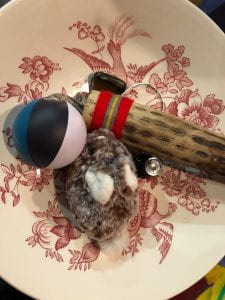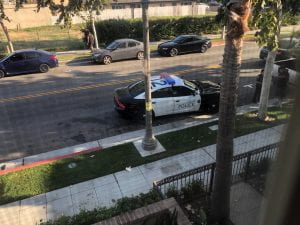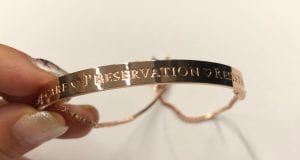Whew, friends. The last couple of weeks, especially the last three Wednesdays, have been A LOT.
I love teaching.
There aren’t even really words to fully express the joy that I feel from teaching. Teaching gives me the opportunity to profoundly connect with others and (often) support them in learning, while also challenging me to continue to grow. It’s a huge part of my professional heart. It brings me energy, life, and sheer joy.
And also, it’s exhausting.
This semester, I’ve returned to the classroom to teach a double section of a Masters (teacher) (action) research course (online) which I’m picking up from two other instructors mid-way through a two-course series that is split over the spring and fall semesters.
I could have spent my last semester teaching out a course (in-person) that I helped to create and transform, that I’ve taught before, to credential students, and that I love. But, for a variety of reasons, I chose to take on a new prep, also teaching something I love (and I always love students so that is what it is), but with very different constraints.
I love these students. I love teaching (teacher) (action) research (in parenthesis because this is not exactly how the course started in the spring for almost half of them). But it’s been a rough semester of transition for students and for myself, that has involved a lot of support, unlearning, and co-construction. I know we’re all going to be fine, but it’s…well…a lot.
Beyond this, I have a foot in (at least) two professional worlds as I transition universities (between fall and winter), am at a peak moment of motherhood, as I support my eldest biological child into college (my older daughters did not choose to go a traditional college path so this is a first for me), and have been working to wrap up initiatives and support others in my professional and personal circles. I also have multiple writing projects I’m working on, lots of them with people who are deeply important to me, going on consecutively. Fall conference season is quickly approaching. Oh, and I decided to start a new (part of a) study. It is all the things.
Not to mention that I am a whole human being, with feelings (lots of them), limits (working on them), and only so much energy.
So this week, after my third consecutive 14-hour Wednesday, I kinda hit a wall.
Or an ocean.
I mean, something in my path that stopped me (insert your favorite nature metaphor here).
If I’m being completely honest, I began to rapidly approach the wall/ocean/ inserted metaphor last week, feeling a deep sadness & loneliness, in spite of being surrounded by people and all the things there are to do. I was not taking a moment to pause and be with myself, to nourish myself in the light of those I care deeply for and love the most. I was just pushing forward without care or acknowledgment of what I was experiencing, without pause.
Urgency doesn’t bring, bridge, or build community.
I knew it was bad (good? making its own space for itself?) when I cried in a meeting with our new department chair, the third time that week that tears welled up in front of my computer.
Still, I felt compelled to work over the long weekend. That compulsion often comes up when I’m feeling out of control, a remnant of years where professional/ academic accomplishments were the only consistent validation in my life.
But this week, after Wednesday’s exhaustion, I couldn’t keep pushing on.
So yesterday and today, I am pacing myself. I am reminding myself that the work I need to do, especially the work that involves writing and femtoring, requires my full self, and my full self requires time, breath, and the modeling of wholeness (and regathering) that is not on a defined timeline. There will still be things that get done, but I am breathing into them, rather than rushing through them, and I am working on being willing to let some of them go, if they are not for this moment.
I am working on this. I am still highly imperfect at it, but I’m sharing this as a work in progress because that is a part of the life and times of an evolving academic, I suppose, and more importantly, it is part of the life and times of an evolving human.

